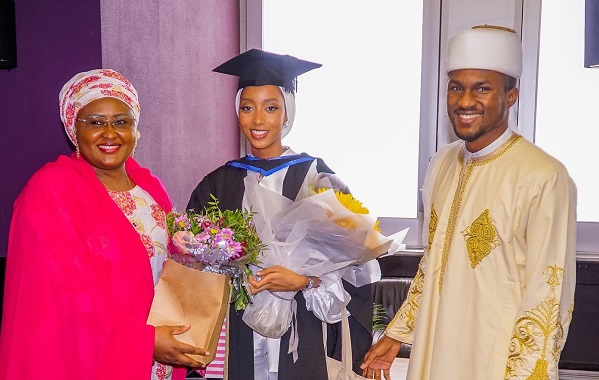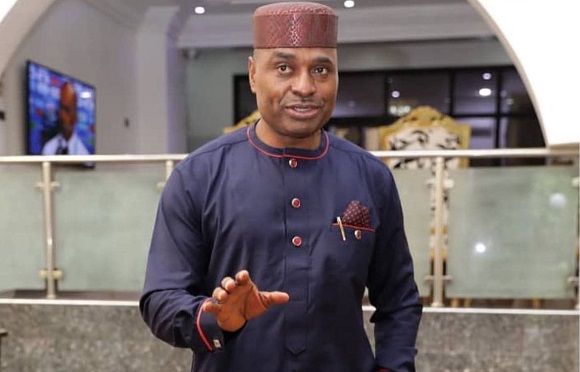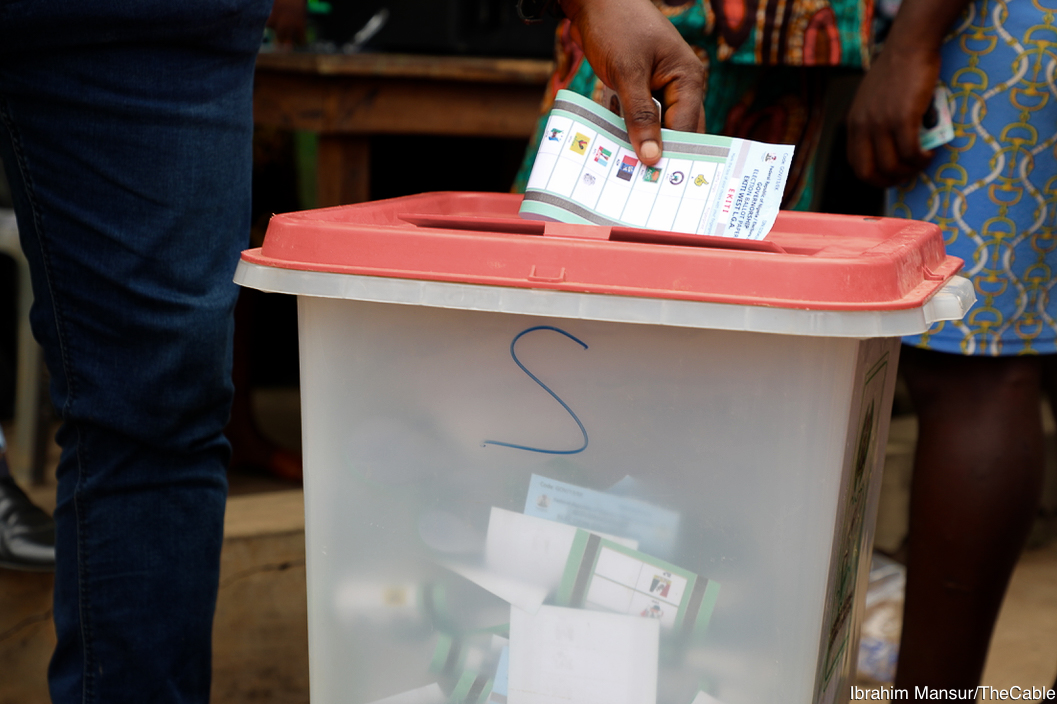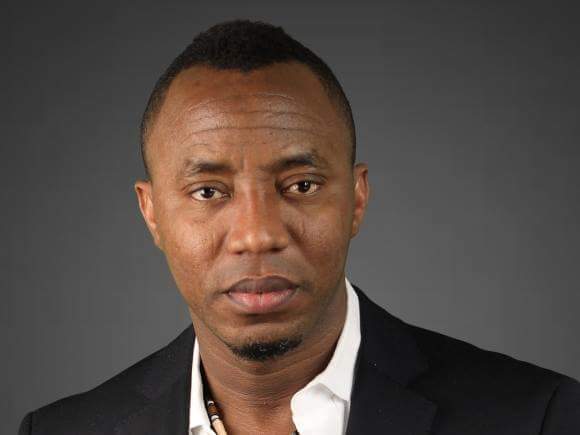The 47th edition of the Toronto International Film Festival, TIFF which opened on Thursday, September 8 with The Swimmers (directed by Sally El Hosaini), closed on Sunday, September 18, 2022, in Toronto, Canada’s commercial hub with the film Dalíland (directed by Mary Harron). The last day of the film festival also saw the presentation of several awards such as the People’s Choice Awards, Platform Prize, NETPAC, and FIPRESCI, IMDbPro Short Cuts, Canada Goose Amplify Voices Awards, and Shawn Mendes Foundation Changemaker Awards (See the winners at the end of this column).
I was in Toronto for the first weekend of TIFF, from Thursday, September 8 to Sunday, September 11, 2022. As with all the film festivals that I attend, the main objective was to watch as many films as possible. As this was my second time at TIFF having attended the 2017 edition, I had a fair idea of how to go about the business of watching as many films as possible. However, this being the first in-person edition of TIFF since 2019, certain aspects of the festival were somewhat laidback and didn’t look festive. Add to this, the fact that Queen Elizabeth II died on September 8, the opening day of TIFF, also contributed to the somber atmosphere on Day 1. The late monarch was Canada’s head of state. This was also my first TIFF (or any A-list film festival) where the media accreditation came with only a badge, no festival bag with brochures, and nothing extra.
All that notwithstanding, the one aspect of TIFF that didn’t disappoint was audience attendance. People turned out enthusiastically, especially for the public screenings which require paid tickets. For instance, for the public screening of The Woman King (directed by Gina Prince-Bythewood) on Saturday, September 10, a huge crowd of people lined up in a queue that went round the block. And the Visa screening room at the Princess of Wales Theatre was literally packed to the rafters, all of its many levels. Later on Saturday evening, people again turned out glamorously, for the public screening of The King’s Horseman (directed by Biyi Bandele). No prizes for guessing that Nigerians were the most glamorous of those who turned out.
Now, I must tell you about some of the films I saw at TIFF 2022:
Advertisement
- The Woman King
Director: Gina Prince-Bythewood
Starring: Viola Davis, John Boyega, Thuso Mbedu, Jimi Odukoya, Lashana Lynch, Sheila Atim, Angelique Kidjo
From the 17th to 19th century, in the kingdom of Dahomey in West Africa (present-day Republic of Benin), the Agojie, a powerful all-women army fought and won many battles. The Woman King is set in the period around the 1820s about the Agojie led by General Nanisca (Viola Davis) in the reign of King Ghezo (John Boyega). After winning many battles, the Agojie however now have to decisively deal with the powerful and better-equipped Oyo Empire whose army is led by Oba Ade (Jimi Odukoya). A defeat by the Oyo Empire could turn the entire citizens of Dahomey into their enemy’s slaves. They were already paying heavily to the Oyo Empire with gifts of treasures and people sold as slaves. Trading in slaves is the business of the day and King Ghezo was not averse to doing business with the Portuguese and others, but Nanisca has other ideas which see a future that does not include selling their people. But how does small Dahomey take on the almighty Oyo Empire? Nanisca is willing to die trying.
Advertisement
To prepare for the big battle against the Oyo Empire, Nanisca with the able assistance of Izogie (Lashana Lynch) trains more female warriors and in this lineup, Nawi (Thuso Mbedu) stands out. Nawi is given out to the king by her father because she wouldn’t agree to marry any of the men who have been seeking her hand in marriage. Luckily for everyone involved, Nawi, instead of being sold into slavery or turned into a servant, becomes an Agojie and proves herself a worthy warrior, even as she has trouble obeying orders. We also find out that Nawi is adopted and the man who offered her to the king is not her biological father after all.
What’s more, Nawi has a familial connection to Nanisca. I suppose no one ought to be surprised that a lion hasn’t given birth to a goat. Without giving you further spoilers, Nanisca is eventually made the woman king by King Ghezo. Viola Davis, more than her acting, I like that she looks the part of a warrior. What’s not to like? She’s a very believable Agojie. Yes, she drops her accent (which I assume is meant to be African) sometimes. In any case, there are a variety of accents: John Boyega is decidedly channelling a Yoruba/Nigerian accent. Jimi Odukoya, well, sounds like Jimi Odukoya. And all the other warriors settle for whichever accent they’re comfortable with which is not really an issue as far as I’m concerned.
Enough of the talk. The Woman King opened in cinemas on Friday, September 16, 2022. I suggest you give yourself a treat by going to watch it. Thus far, I’ve managed to keep down my excitement about The Woman King. I don’t approach films like The Woman King and Black Panther, with the intention of checking for the historical exactitude or other investigations. I have heard some people picking holes with The Woman King’s historical depth or the lack thereof. For starters, history is not that well taught in these parts. As a West African woman, I didn’t know about the Agojie until Black Panther, and even then, I didn’t even know of them by their name. The idea that long before colonization and ‘civilization,’ we had women in Africa that were winning wars and putting the fear of God into kingdoms and empires is one I’m very happy to see in film after film.
Equally important with regard to The Woman King, the fact that there are at least two Nigerian actors, Jimi Odukoya and John Boyega, in the film made me approach it like The Woman King is Nigeria’s entry to TIFF instead of the American film it is. Some have suggested that Nigeria shouldn’t claim John Boyega because he’s British or British-Nigerian. For starters, the guy himself associates with Nigeria and doesn’t deny his Nigerian-ness. In any case, if John Boyega were to be involved (even alleged to be involved) in a crime, the whole world would soon be told that he’s Nigerian: Nigerian-born, or of Nigerian descent, or that his parents are Nigerian, etc.
Advertisement
Fortunately, as far as Jimi Odukoya is concerned, no one can take the credit away from Nigeria and by extension Nollywood. To top it off, his character Oba Ade plays a prominent role in the film. His character squares off against lead actress Nanisca and they share major screen time in their one-on-one battle. Would it have been more authentic if he spoke some Yoruba? For sure, yes. But he did his role justice and Nigeria proud. I made sure to show my appreciation when his name came up in the credits. I wonder why he doesn’t have a Wikipedia page, though. Angelique Kidjo (Meunon) is one of King Ghezo’s palace chiefs. Fans of Generations will also catch a glimpse of Seputla Sebogodi who’s also one of the palace officials.
- On The Come Up
Director: Sanaa Lathan
Starring: Jamila C. Gray, Sanaa Lathan, Da’Vine Joy Randolph, Method Man, Lil Yachty, GaTa, Mike Epps, Michael Cooper Jr., Justin Martin, Miles Gutierrez-Riley
On The Come Up directed by Sanaa Lathan is an adaptation of Angie Thomas’ book of the same title. Thomas is also the author of The Hate U Give, her first book which has also been adapted to the 2018 critically acclaimed film of the same title directed by George Tillman Jr. which premiered at the 2018 TIFF. I mention The Hate U Give because that was the draw. Because as I remembered The Hate U Give with fondness, I went to watch On The Come Up with high expectations. Its story is set in the same predominantly Black but fictional neighbourhood of Garden Heights as The Hate U Give and just like the first book/film, hip hop is at the centre of its story.
Advertisement
Sixteen-year-old Brianna, sometimes called Bri, or Lil Law (Jamila C. Gray) is a talented upcoming rapper hoping to become a star. She also hopes to follow in her late father Lawless’s footsteps and perhaps even surpass him. Everyone who knew her father agrees that she indeed has his talent and the neighbourhood contests (rap battles) she routinely wins even against established acts like Infamous Millz (Lil Yachty) and M-Dot (GaTa) attest to her talent. However, making it out of Garden Heights is not so easy. Bri is faced with two options: Keep on with her clean music that’s heavy on poetry or do like all the rappers who have made it, who glorify street life?
Supreme (Method Man), her dad’s former manager appears to have the right connections and Bri finds what he’s offering plus his lifestyle very tempting. The pressure piles further. Her mother Jay (Sanaa Lathan), a recovering addict is grappling with so much: Unemployment/unemployable because of her previous addiction record, the electricity has been cut in their house, in all, things are generally tough. So, no one is surprised when Bri gives in to Supreme’s plans and releases an uncharacteristic song about street violence, guns and so on. That gives her instant fame but brings untold bad blood she’s not ready for. Her mother is not in support, nor is her aunt Pooh (Da’Vine Joy Randolph) who’s been managing her career before Supreme came along. Her friend cum crush Malik (Michael Cooper Jr.), is also not initially happy with her decisions. In the face of this growing displeasure, does Bri continue with Supreme, assured of a lifestyle of luxury or does she revert to her authentic self? Your guess is as good as mine.
Advertisement
As a film adapted from a young adult book, On the Come Up makes for good watching. Unfortunately, some of the issues aren’t given enough depth. The issue of rappers pushing music that promotes violence…is deeper than them just pretending. It would seem as if there are more rappers who embody the culture they sing about than not. This is Sanaa Lathan’s first feature film so …
To be continued….
Advertisement
NOTICE BOARD
IMDbPro SHORT CUTS AWARDS
Advertisement
- IMDbPro Short Cuts Award for Best Film: Snow in September, director: Lkhagvadulam Purev-Ochir.
- IMDbPro Short Cuts Award for Best Canadian Film: Simo, director: Aziz Zoromba
- IMDbPro Short Cuts Share Her Journey Award: Nanitic, director: Carol Nguyen
“The 2022 IMDbPro Short Cuts Awards are for Best Film, Best Canadian Film, and the Share Her Journey Award for best film by a woman. Each winning film will receive a bursary of $10,000 CAD and a one-year membership to IMDbPro, the essential resource for entertainment industry professionals, to help them continue achieving success in their careers
NETPAC AWARD
- The 2022 NETPAC Award goes to Sweet As, director: Jub Clerc
FIPRESCI PRIZE
- TIFF 2022 FIPRESCI prize is awarded to A Gaza Weekend, director: Basil Khalil
AMPLIFY VOICES AWARDS PRESENTED BY CANADA GOOSE
The three Amplify Voices Awards presented by Canada Goose winners are:
- Amplify Voices Award for Best Canadian Feature Film: To Kill a Tiger, director: Nisha Pahuja
- Amplify Voices Award: Leonor Will Never Die, director: Martika Ramirez Escobar
- Amplify Voices Award: While We Watched, dir. Vinay Shukla
PEOPLE’S CHOICE AWARD
The People’s Choice Awards as voted by the viewing public. All films in TIFF’s Official Selection were eligible:
- The TIFF 2022 People’s Choice Midnight Madness Award winner is Weird: The Al Yankovic Story, director: Eric Appel
- The TIFF 2022 People’s Choice Documentary Award winner is Black Ice, director: Hubert Davis
- The TIFF 2022 People’s Choice Award winner is: The Fabelmans, director: Steven Spielberg
SHAWN MENDES FOUNDATION CHANGEMAKER AWARD
“The Shawn Mendes Foundation, the 2022 Changemaker Award is awarded to a Festival film that tackles issues of social change and comes with a $10,000 cash prize.
- The 2022 Changemaker Award is given to Luis De Filippis’ Something You Said Last Night
PLATFORM PRIZE
“Named after Jia Zhang-ke’s trailblazing second feature, Platform is the Toronto International Film Festival’s competitive programme championing bold directorial visions.”
- The Platform Prize 2022 is presented to Anthony Shim for Riceboy Sleeps.
Onoshe Nwabuikwu, AIRTIME columnist is a renowned TV/Film critic, and Film scholar. She also has experience in Advertising as a senior Copywriter and Corporate Communications as Communications consultant. Email: [email protected].







